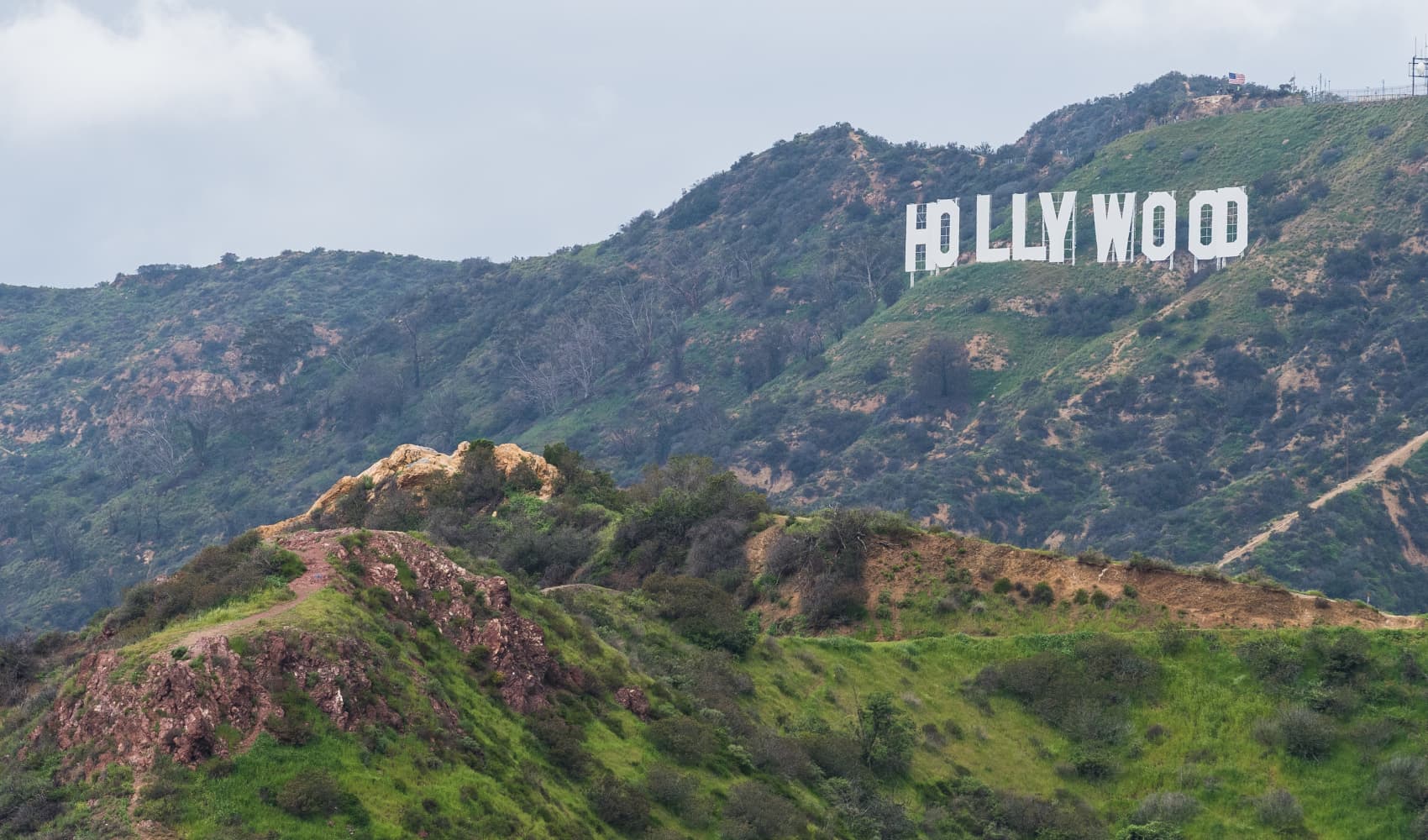Hollywood Film Tariff: Studio Stocks Plummet - Impact Explained!
Hollywood Braces for Impact: Trump's Tariff Threat Sends Studio Stocks Tumbling
Introduction: Lights, Camera, Uh Oh!
Hold on to your popcorn, folks, because the Hollywood rollercoaster just took a sudden dip! It seems like President Donald Trump's latest proposal is causing more than just a stir in the entertainment industry; it's sending shivers down the spines of studio executives and investors alike. What's all the fuss about? Well, get ready for a potential 100% tariff on movies made outside the United States. Yes, you read that right. A one-hundred-percent tariff!
The Truth Social Bombshell: A "National Security Threat?"
The news dropped like a bombshell on Truth Social, Trump's social media platform, where he declared tax incentives offered by foreign countries a "national security threat." Could those sweet foreign tax breaks actually be jeopardizing our national security? It sounds like a plot ripped straight from a Hollywood thriller, but this time, it's reality.
Stock Market Mayhem: Red Alert in Hollywood
Investors reacted swiftly, and the news wasn't good. Shares of major Hollywood studios and streaming services experienced a premarket tumble. We're talking about the giants: Netflix, Disney, Warner Bros. Discovery, Paramount, and even Comcast. It was a sea of red as investors scrambled to make sense of this potential game-changer.
Breaking Down the Damage: Who Felt the Pinch?
Here’s a quick rundown of how some of the biggest players fared:
- Netflix: Down more than 5%
- Disney: ... (content incomplete)
Netflix's Nosedive: Is the Golden Age Over?
A 5% drop for Netflix is no small potatoes. Is this a sign that the streaming giant's reign is under threat? Only time will tell, but it's definitely a wake-up call.
The Million-Dollar Question: How Would This Even Work?
Okay, so a 100% tariff sounds drastic, but how would this actually work in practice? That's the million-dollar question everyone's asking. How Trump intends to implement these duties is unclear, as is exactly who is being targeted and who would ultimately foot the bill.
Unanswered Questions: Uncertainty Reigns
The lack of clarity surrounding this proposal is creating a lot of uncertainty, which is never good for investors. Uncertainty breeds fear, and fear breeds selling.
Hollywood's Response: Silence or Strategy?
So far, most of the major studios have remained tight-lipped about the proposal. Are they strategizing behind closed doors, or are they hoping this will all blow over? Silence can be deafening, but sometimes it's the smartest move.
The Impact on Independent Filmmakers: A David vs. Goliath Battle?
While the big studios might be able to weather this storm, what about independent filmmakers? Will this tariff cripple smaller productions that rely on foreign locations and tax incentives? Could this be the final nail in the coffin for independent cinema?
Consumer Consequences: Will Ticket Prices Skyrocket?
Let's not forget about the viewers! If studios have to pay a 100% tariff on films shot abroad, guess who's going to end up paying for it? You guessed it: the consumers. Could we be looking at a future where movie tickets cost an arm and a leg?
The Political Fallout: Is This a Campaign Strategy?
Some political analysts believe this proposal is nothing more than a campaign strategy to appeal to a specific voter base. Is this about protecting American jobs, or is it just political theater?
Foreign Film Industries: A Global Ripple Effect
This tariff wouldn't just impact Hollywood; it would have a ripple effect on film industries around the world. Countries that offer attractive tax incentives for foreign productions could see a significant decline in business. Are we on the verge of a global film industry shakeup?
The Future of Film Production: Back to the USA?
One possible outcome of this tariff is that more films would be shot in the United States, potentially creating jobs for American crews and actors. Could this be the beginning of a Hollywood renaissance, with production returning to its roots?
Legal Challenges: A Courtroom Showdown?
It's highly likely that this tariff would face legal challenges, both domestically and internationally. Could we be heading for a protracted legal battle that could drag on for years?
The Bigger Picture: Trade Wars and Global Economics
This proposal is just one piece of a larger puzzle involving trade wars and global economics. Is this a sign of things to come, with more protectionist policies on the horizon?
Adapting to the New Reality: Hollywood's Survival Strategy
Regardless of what happens, Hollywood is known for its resilience and ability to adapt. Studios will need to find new ways to navigate this challenging landscape. Will they embrace innovation, or will they double down on existing strategies?
Conclusion: Uncertainty Lingers, But Hollywood Endures
The threat of a 100% tariff on foreign film productions has sent shockwaves through Hollywood, causing stock prices to fall and raising numerous questions about the future of the industry. While the details remain unclear, one thing is certain: Hollywood is facing a period of significant uncertainty. Whether this proposal becomes reality or not, it serves as a reminder of the ever-changing landscape of the entertainment industry and the need for studios to be adaptable and innovative. Hollywood has weathered storms before, and it will undoubtedly find a way to navigate this one as well. So, keep your eyes peeled, folks, because the next chapter in this Hollywood saga is sure to be a blockbuster!
Frequently Asked Questions
- What exactly is a tariff, and how does it work?
A tariff is a tax imposed by a government on imported goods or services. In this case, it would be a tax on the production cost of films made outside the United States. It increases the cost for studios, which could lead to higher ticket prices or decreased production budgets.
- Why does Trump consider foreign film tax incentives a "national security threat?"
The rationale behind this statement is unclear, but it likely centers around the idea that these tax incentives encourage film production to move overseas, taking jobs and revenue away from the United States. The "national security threat" label is arguably hyperbole to emphasize the severity of the issue in Trump's eyes.
- How would this tariff impact streaming services like Netflix?
Streaming services like Netflix often produce original content in various countries to take advantage of local tax incentives and resources. A tariff could significantly increase the cost of producing this content, potentially impacting subscription prices and the availability of certain shows and movies.
- Are there any potential benefits to this tariff?
One potential benefit is that it could encourage more film production to occur in the United States, creating jobs for American actors, crew members, and other industry professionals. It could also boost the U.S. economy through increased spending and investment in the film industry.
- What are the chances that this tariff will actually be implemented?
It's difficult to say for sure. The implementation of such a tariff would likely face legal challenges and require significant political will. The outcome will depend on a variety of factors, including the results of upcoming elections and the level of opposition from the film industry and other stakeholders.

